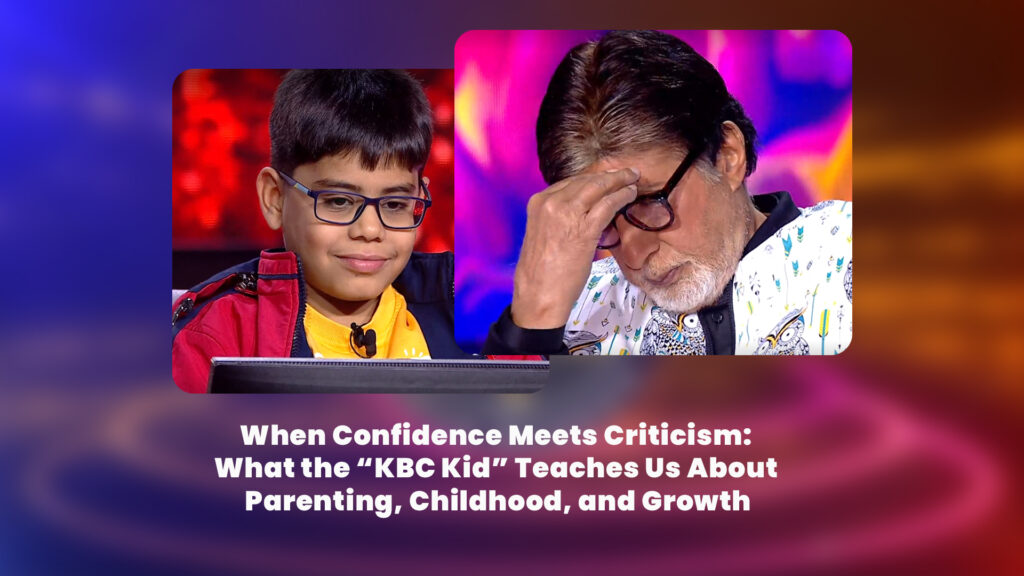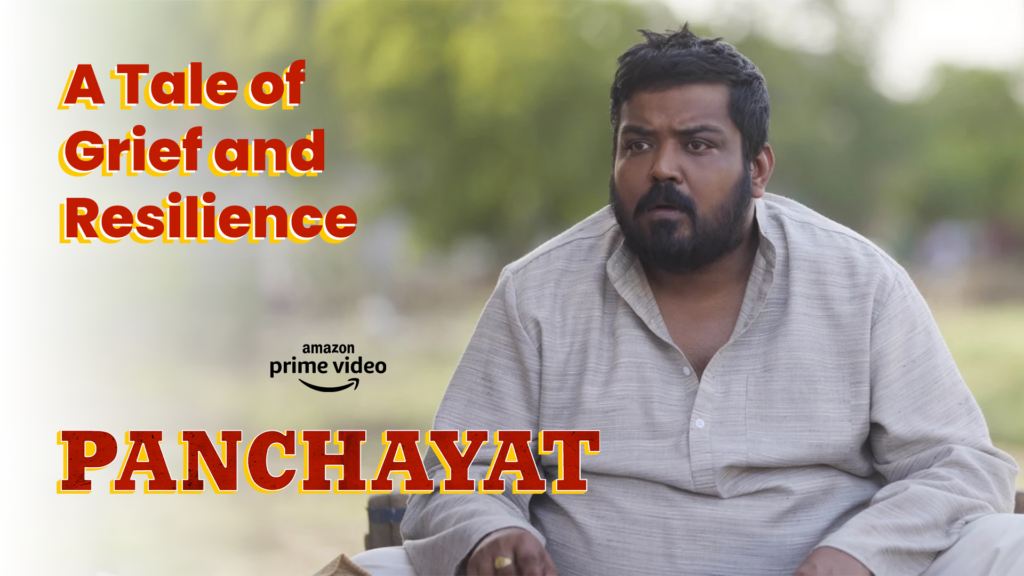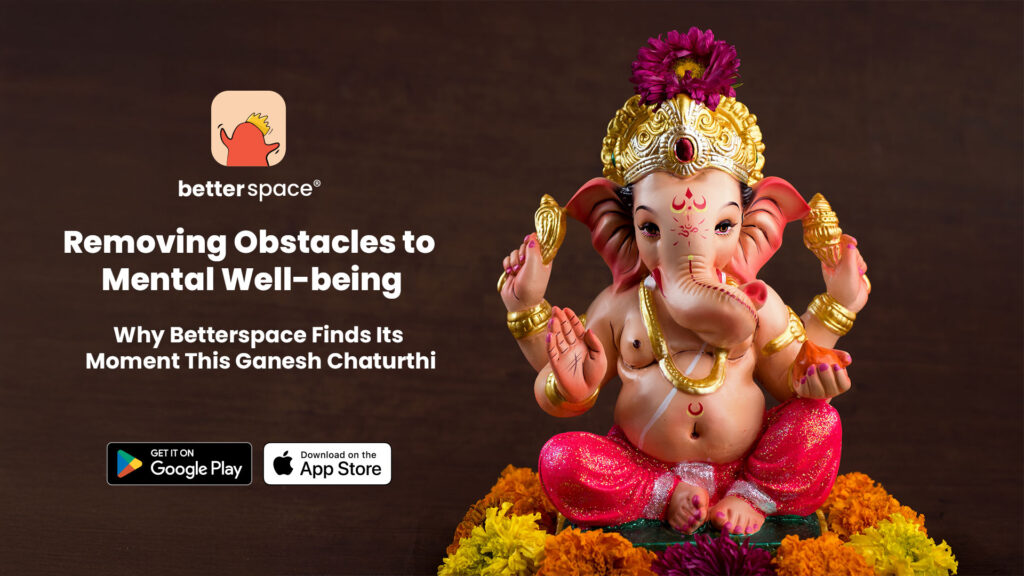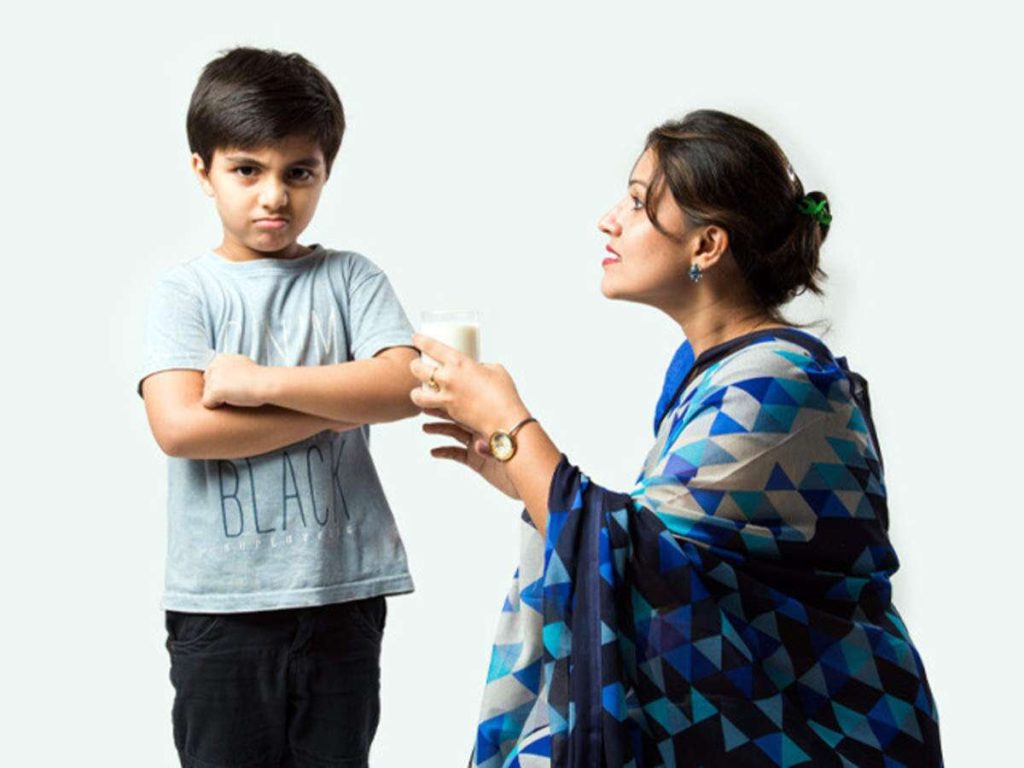When Confidence Meets Criticism: The Viral “KBC Kid” and What It Teaches Us About Modern Parenting, Child Confidence, and Mental Health

The Viral Moment That Started It All
A recent episode of Kaun Banega Crorepati (KBC) Season 17 caught India’s attention — not for a record-breaking win, but for a ten-year-old contestant named Ishit Bhatt.
During the show, when Amitabh Bachchan began explaining the rules, Ishit interrupted confidently:
“Don’t explain the rules, just ask the next question.”
Within hours, the clip went viral. Social media branded him as “arrogant,” “overconfident,” even “rude.” Some defended him, saying it was refreshing to see a child so assured. Others criticized his tone.
Soon, the conversation wasn’t about trivia or prizes — it was about parenting, childhood, and respect.
At BetterSpace, we see moments like these not as internet drama, but as windows into modern emotional life — where children grow up confident, curious, yet often misunderstood.
So, what does this viral moment really tell us about childhood, parenting, and mental health in 2025?
1. Confidence or Communication Gap?
Let’s start with what’s obvious: the child was confident.
But was he disrespectful? Or was it a case of unpolished communication?
Children between 8–12 years old are still developing social cognition — the ability to read tone, intent, and audience reactions. What seems like “rudeness” might simply be directness without filters.
At BetterSpace, our child psychologists often remind parents:
“Confidence isn’t the opposite of humility — it’s a seed that needs both sunlight and shade.”
It’s wonderful to raise outspoken, self-assured kids. But they must also learn timing, empathy, and social awareness. That comes not from scolding, but from modeling empathy at home — showing kids how to express assertiveness with kindness.
2. The Pressure of Performing in Public
Imagine being 10 years old, sitting across from Amitabh Bachchan, cameras rolling, a nation watching, and a clock ticking.
Even adults freeze under that kind of spotlight.
Children often respond to stress with defensive confidence — they act “cool” to mask anxiety. What appears as arrogance might actually be performance pressure playing out as bravado.
We’ve seen this pattern in therapy too. Kids under performance stress—whether in academics, talent shows, or interviews—sometimes overcompensate to feel in control.
That’s not misbehavior. That’s the nervous system’s way of self-soothing.
At BetterSpace, we encourage parents and educators to introduce children to mindfulness, grounding exercises, and role-play practice before public events.
This helps them handle pressure without losing empathy or calm.
3. Parenting in the Age of Virality
Parenting today isn’t private. Every word, smile, and stumble can go viral.
But childhood was never meant to be broadcasted perfection.
When Ishit’s clip spread online, people quickly shifted blame — first to the child, then to his parents.
But parenting isn’t about controlling every moment. It’s about guiding children through their mistakes with understanding.
A single episode, however viral, doesn’t define a child. What defines them is what follows — the conversations at home, the lessons about humility, and the compassion they receive after public scrutiny.
BetterSpace’s Parenting 101 Programs emphasize something simple yet profound:
-
Correct gently, not harshly.
-
Praise character, not performance.
-
Teach listening as an act of love, not submission.
-
Help children name emotions — “I felt nervous,” “I wanted to sound smart,” “I didn’t mean to sound rude.”
That’s how empathy begins.
4. Social Media’s Double-Edged Sword
Social media can turn a 30-second clip into a lifelong label.
That’s not fair to adults — and it’s especially unfair to children.
Kids today live in what psychologists call the “hypervisibility trap” — being seen by millions but not truly understood by anyone.
Their confidence is publicly praised, their mistakes are publicly punished.
The result? Anxiety, shame, and identity confusion.
As adults, we can do better.
Instead of amplifying a child’s “flaws,” we can amplify awareness:
-
That confidence needs emotional grounding.
-
That mistakes are part of growth.
-
That children deserve privacy and empathy even when they go viral.
5. Schools, Media & The Missing Conversation
Every child on television is also a student, a dreamer, and a human being still learning.
Imagine if every kids’ show included a short post-episode reflection led by a child psychologist — to help participants process emotions, feedback, and public reactions.
At BetterSpace, we advocate for this kind of integration.
Our partnerships with schools, educational boards, and content creators are designed to create emotionally safe environments — where performance and well-being co-exist.
When empathy becomes part of education, moments like these turn from controversy to classroom.
6. How to Raise Emotionally Intelligent Kids (The BetterSpace Way)
Here are some evidence-based ways parents can nurture healthy confidence — without letting it turn into defensiveness or entitlement:
🌱 1. Model Respect, Don’t Demand It
Kids learn respect by watching it, not being ordered into it. Show them how to disagree calmly, how to listen, and how to pause before reacting.
💬 2. Practice Mindful Conversations
Ask open-ended questions: “What made you say that?” or “How did that feel?” This helps them build emotional vocabulary.
🧘♂️ 3. Teach Grounding Techniques
Before a big event or test, guide them through deep breathing or visualization. Calm kids communicate better.
🧩 4. Encourage Self-Reflection
After conflicts, sit together and explore both perspectives. This builds empathy — the foundation of emotional intelligence.
❤️ 5. Seek Professional Guidance When Needed
Parenting isn’t meant to be done alone.
BetterSpace offers Parenting Support Circles and Child Therapy Pods that provide safe, professional help for emotional development and behavior regulation.
7. From “Viral Moment” to Lifelong Learning
In a few months, the internet will forget this viral clip.
But for that child — and thousands like him — the experience can shape how they see themselves for years.
The real question is: will we, as a society, let one moment define him, or will we teach him to define the moment?
Because childhood isn’t about being flawless.
It’s about being guided — through kindness, reflection, and second chances.
A Final Word: Compassion Is the Future of Parenting
The Kaun Banega Crorepati moment wasn’t really about a quiz show — it was about the fragility of growing up in public, and the collective responsibility of adults to protect that process.
At BetterSpace, we believe every child deserves to be seen with empathy, not judgment.
And every parent deserves to be supported, not scrutinized.
So, next time a child’s confidence feels too loud or misplaced — pause, breathe, and listen.
You might just be hearing a young mind still learning the music of empathy.
Explore Better Parenting with BetterSpace
If this conversation resonates with you, explore our range of programs:
-
🧠 Parenting 101 Workshops – Build emotional connection & positive discipline.
-
💬 Family Well-being Sessions – For parents and children navigating modern challenges.
-
🧩 Child Mental Health Plans – Personalized therapy and skill-building for kids.
Visit www.betterspace.care to learn how we’re helping families across India nurture mental health, empathy, and balance.






